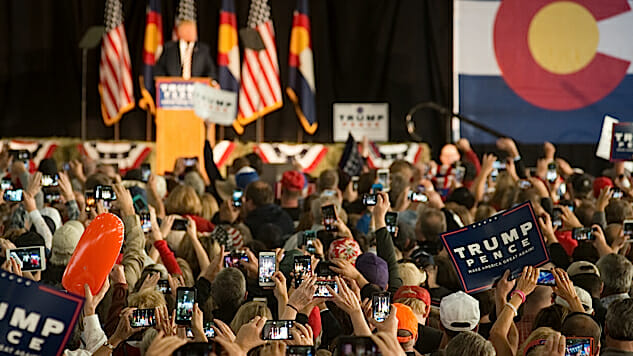How Smartphones Contributed to the Election of Donald Trump
Photo by Theo Stroomer/Getty
A 2016 study published in PLoS ONE found that the more someone relies on their smartphone for information, the less likely they are to trust “neighbors, strangers, and people from other religions or nationalities.” In contrast, obtaining information through any other method—including TV, radio, newspapers, and even the Internet more broadly—predicted higher trust in those groups, according to the authors of the study.
We’ve heard a great deal about the impact that social media and the internet more generally has had on the US election, from the Economist reporting that Facebook more accurately predicted a variety of swing states than polling, to the numerous reports on voters consumption of fake news and the echo chambers of the internet that have created a fiercely polarized electorate.
However, as this study highlights, less attention has been paid to how we physically consume this information and what impact that might have.
Compared to the 1980’s, Americans were consuming about five times more information by 2007, according to a 2011 paper in Science. However, the majority of that still came from traditional mediums such as TV, radio, and the newspaper.
That dynamic has begun to shift since then.
In April, of 2015, the Pew Research Center released its “State of the News Media 2015” report, which began with the following headline finding:
“Call it a mobile majority. At the start of 2015, 39 of the top 50 digital news websites have more traffic to their sites and associated applications coming from mobile devices than from desktop computers.”
-

-

-

-

-

-

-

-

-

-

-

-

-

-

-

-

-

-

-

-

-

-

-

-

-

-

-

-

-

-

-

-

-

-

-

-

-

-

-

-








































